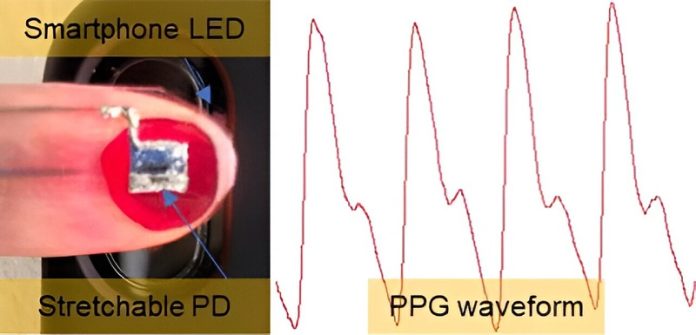
We all know someone who sports a fitness tracker or a smartwatch.
These tiny gadgets that you wear, like wristbands or watches, help track things like how many steps you’ve taken, your heart rate, and even your sleep.
But there’s always room for improvement, and that’s what scientists at the FAMU-FSU College of Engineering are focusing on.
So, what’s their big news?
They’ve found a way to make health trackers that stick better to your skin, are super comfy, and give even more accurate health readings.
Imagine wearing a band-aid; that’s how these new trackers might feel, only smarter!
Why is this a big deal?
Well, according to Zhibin Yu, one of the brainy folks behind this research, the health monitors we wear right now are pretty stiff.
But our skin isn’t stiff; it’s soft. So there’s a mismatch. This new technology is like a middle-ground—it’s soft like our skin but smart like a gadget.
This makes it better at reading what’s happening inside our bodies, especially when it comes to our heart.
But how do these devices work anyway?
It’s pretty cool, actually. These devices shine a tiny light (from LEDs) onto your skin, and then another part of the device (called a photodiode) sees how this light interacts with your skin and blood.
Depending on how the light looks after bouncing back, the device can tell certain things about your heart and blood flow.
So, what’s different now?
Researchers have made a new kind of photodiode, the part that ‘sees’ the light.
Unlike the hard and rigid ones in current devices, this new photodiode is soft, stretchy, and squishy. So, it’s more comfortable and can stick to your skin much better.
Think of it as upgrading from a hard plastic seat to a soft cushiony chair! And because it fits better, it gives a clearer picture of what’s going on with your heart.
Why should we care?
With better health trackers, we can better understand our bodies. These improved gadgets could catch heart issues sooner, leading to better treatment and healthier lives.
Plus, with more people being able to test themselves at home accurately, hospitals and doctors might have more time and resources for other patients.
It’s like having a mini-doctor on your wrist, giving you instant check-ups!
Who’s behind this magic?
A lot of clever minds are collaborating on this! Leading the pack are Pengsu Mao and Zhibin Yu from the FAMU-FSU College of Engineering.
They’re not alone; they’re teaming up with experts from other departments at their university, the National High Magnetic Field Laboratory, and even researchers from as far as China and the Brookhaven National Laboratories. It’s truly a global effort to make our wearable gadgets better.
Key Takeaways
The future of wearable health trackers is looking brighter, stretchier, and smarter, thanks to the work of these dedicated researchers.
They’re turning science fiction into reality, one soft and stretchy health monitor at a time!
Follow us on Twitter for more articles about this topic.
Source: Florida State University.



